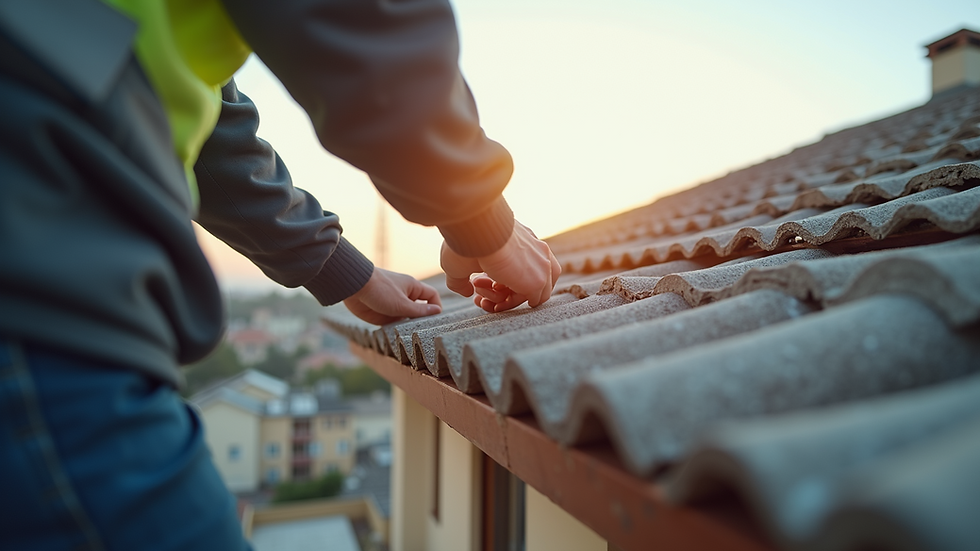Understanding Specialized Tests for Your Home
- Todd KROST
- Sep 15, 2025
- 4 min read
When buying or selling a home, knowing its condition is crucial. Beyond the usual visual inspection, there are specialized home tests that provide deeper insights. These tests help uncover hidden problems that could affect safety, value, or future repairs. I want to share what these tests are, why they matter, and how they can guide your decisions.
Why Specialized Home Tests Matter
A standard home inspection covers many basics like the roof, plumbing, and electrical systems. But some issues require more detailed checks. Specialized home tests focus on specific areas or concerns that a general inspection might miss. For example:
Checking for mold or allergens in the air
Testing for radon gas, which is invisible and dangerous
Inspecting the foundation for hidden cracks or moisture
These tests can save you money and stress by revealing problems early. They also provide peace of mind, knowing your home is safe and sound.

Types of Specialized Home Tests You Should Know
There are many specialized tests available, each targeting a particular issue. Here are some common ones:
Radon Testing
Radon is a radioactive gas that can seep into homes from the ground. It has no smell or color but can cause health problems. A radon test measures its levels and helps decide if mitigation is needed.
Mold Inspection
Mold grows in damp areas and can cause allergies or respiratory issues. Mold inspections involve air sampling and surface testing to detect hidden mold.
Termite and Pest Inspection
Termites and other pests can damage wood structures. This test looks for signs of infestation and damage.
Foundation and Structural Testing
This involves checking for cracks, settling, or moisture that could weaken the home’s structure.
Electrical System Testing
Specialized tests can check wiring safety, grounding, and potential fire hazards.
Water Quality Testing
If your home uses well water, testing for contaminants like bacteria or heavy metals is important.
Energy Efficiency Testing
Tests like blower door tests measure how well your home retains heat or cool air, helping identify leaks or insulation issues.
Each test provides specific information that can influence your buying or selling decisions.
What Tests Can Be Done At-Home?
Some specialized tests can be done by homeowners themselves with kits available online or at hardware stores. These include:
Radon Test Kits: Usually involve placing a small device in the lowest living area for a few days.
Mold Test Kits: Collect air or surface samples to send to a lab.
Water Test Kits: Test for bacteria, pH, hardness, and other common water quality issues.
While these kits are convenient and affordable, they may not be as thorough as professional testing. For critical concerns, hiring an expert is best.

How to Choose the Right Specialized Tests for Your Home
Deciding which tests to perform depends on several factors:
Location: Some areas have higher radon levels or termite risks.
Age of the Home: Older homes may have outdated wiring or hidden mold.
Visible Signs: Water stains, cracks, or musty smells suggest specific tests.
Type of Property: Well water requires water quality testing, while city water may not.
I recommend starting with a general inspection and then adding specialized tests based on the findings or concerns. Consulting with a trusted home inspection service can help you select the right tests.
For example, in Flathead County, Montana, where moisture and cold weather can affect homes, tests for mold, radon, and foundation issues are often important.
Benefits of Professional Specialized Home Testing
While DIY kits are useful, professional testing offers several advantages:
Accuracy: Professionals use calibrated equipment and follow strict protocols.
Comprehensive Reports: You get detailed results with explanations and recommendations.
Expert Advice: Inspectors can interpret results and suggest next steps.
Peace of Mind: Knowing a certified expert has checked your home adds confidence.
If you want thorough and reliable results, consider hiring a service that offers a wide range of specialized tests. For instance, specialized home testing can provide clear, unbiased reports tailored to your property’s needs.

Taking Action After Specialized Tests
Once you have the test results, the next steps depend on what was found:
No Issues Detected: You can proceed with confidence in your home purchase or sale.
Minor Problems: Some issues may require simple fixes like sealing cracks or cleaning mold.
Major Concerns: Serious problems like high radon levels or structural damage may need professional remediation or could affect the sale price.
Always get estimates for repairs and consider negotiating with the seller if you are buying. If you are selling, addressing problems beforehand can increase your home’s value and appeal.
Final Thoughts on Specialized Home Tests
Specialized home tests are valuable tools for understanding your property beyond the surface. They help uncover hidden risks and protect your investment. Whether you are buying, selling, or maintaining a home, these tests provide important information to make smart decisions.
If you want thorough and trustworthy testing in Flathead County, Montana, look for a home inspection service that offers a broad range of specialized tests and clear reporting. This approach ensures you know exactly what you’re dealing with and can move forward with confidence.





Comments